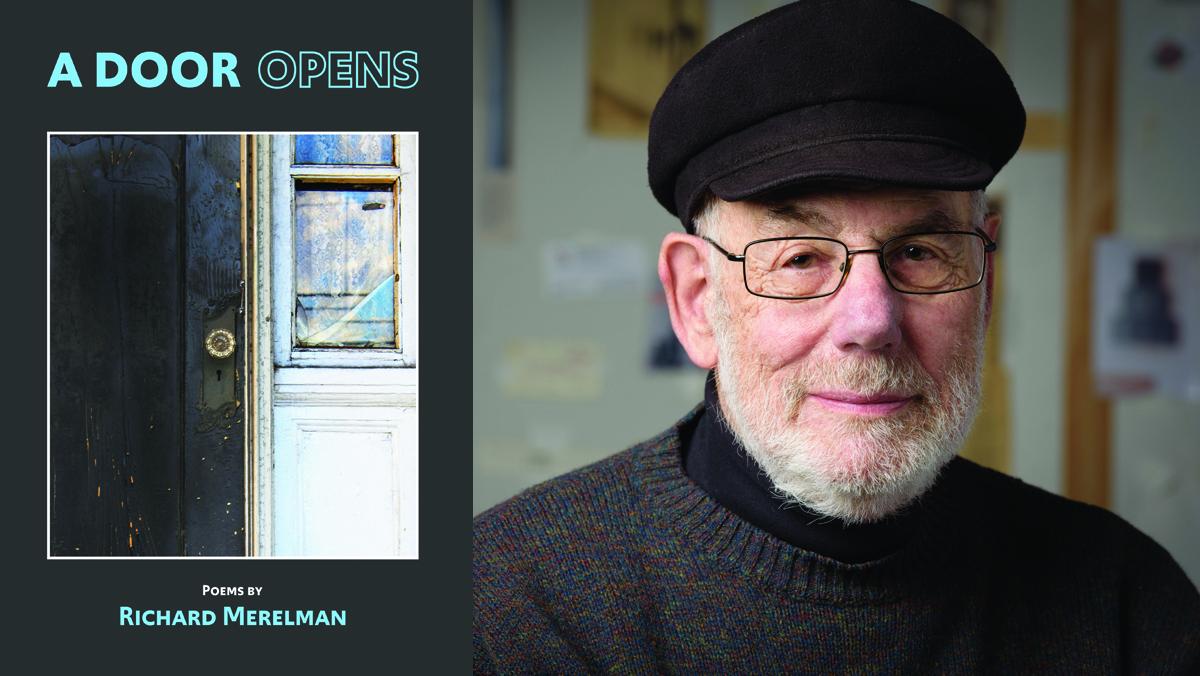Early in Richard Merelman’s poetry collection A Door Opens, a teenage boy appears surrounded by “A sea of images, language, / sensation” exploring sex and violence. And since this takes place in mid-20th century America, it’s no surprise that Casablanca, Playboy, Lady Chatterley’s Lover, and the like, provide the fuel for his questionable explorations of Eros. The poem “How It Starts II” finds the narrator “sniff[ing]… panties” and “jeer[ing] the flabby stripper / at the Gayety Theater.” Later the poem turns from Eros to Thanatos:
The photo doesn’t lie: GIs rip gold teeth
from the corpse of a Japanese
soldier at Peleliu. You’re transfixed.
This coming of age also involves a dawning self-awareness:
“Why do you wallow in the depths
of the senses
like a hog in mud? Do you think
filth is beautiful?”
It’s a good question, for the reader as well as for the speaker, whose answer is: “Compose yourself; become a poet.” A Door Opens is Merelman’s fourth poetry volume since 2012. A Professor Emeritus of Political Science at UW-Madison, he has a worldly trove of travels and trials on which to draw for his frequently harrowing intimations, whether of a personal nature or more broadly addressing the sorry state of humanity at large. And some of the book’s poems make the early teen forays into the grubbier precincts of Eros seem, if not sweet sixteenish, surely mild by comparison.
Infidelity, marital breakdown, addiction, mental illness, domestic violence. A Door Opens is a brave book, but the poet’s handling of these difficult experiences makes it something much more than that. He conveys sorrows and misfortunes that are at once intimately personal but that also resonate with a worldliness beyond mere confession. Merelman’s humanism, incorporating wide reading and a wealth of historical reference, spares the reader any sense that they’re merely reading someone else’s personal mail.
Merelman is a fine poet. His line breaks have linguistic spring, good timing, and drama. His lines are packed with vivid imagery and declarative force. He’s also a deft formalist when he wants to be, with several villanelles, ghazals, and sonnets attesting to that.
Some of these poems, especially the ones about marital breakdown (“The Punch and Judy Show”) and parent-child estrangement (“Hope Against Hope”), are hard to take, and the heart breaks a bit when reading them.
But as the poems accumulate and unfold, readers will also find poignant reminiscences, among them the title poem, “A Door Opens,” and “Coming of Age Twice: An Elegy.” On occasion there are even moments of playful and wild humor, as in “My Watergate: A Dream Journal” which features variations on a scene where the speaker is dicing carrots with Richard and Pat Nixon. It’s one of many surprising moments that reveal a skilled poet at ease in a variety of registers.




